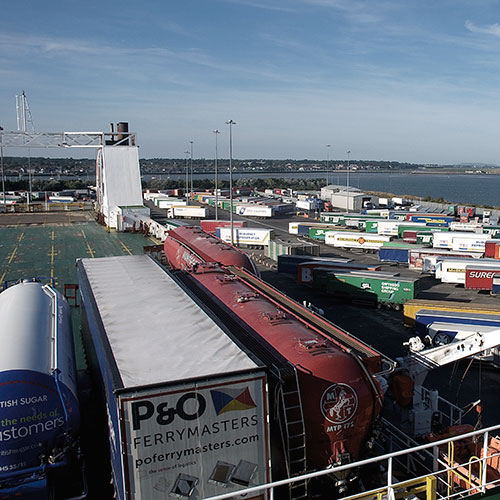
Hurricane Ophelia caused devastation as it tracked northwards over Ireland and the Irish Sea with the cost of repairs so far estimated at anything up to €800m. Billed as the 'worst storm in recorded history on the island of Ireland', associated disruption costs are also likely to run into millions of Euros.
Interestingly, this weather system was unusual as it is rare for a hurricane to stay as potent as Ophelia did. Since a hurricane's strength is fuelled by warm water, it would be normal for its power to reduce as it tracks northward over colder seas. However, with warmer ocean temperatures and a colder upper atmosphere than normal, the stage was set for a humdinger of a storm; Ophelia didn't disappoint.
This hurricane was named by the U.S. National Hurricane Center and having now reached the letter 'O' they only have a few names left in the locker for Atlantic Tropical & Subtropical storms in 2017: Philippe, Rina, Sean, Tammy, Vince and Whitney. But it's early days for our storm naming, which kicked-off on 12th September this year with Storm Aileen to be followed by
Storm Names
- Brian
- Caroline
- Dylan
- Eleanor
- Fionn
- Georgina
- Hector
- Iona
- James
- Karen
- Larry
- Maeve
- Niall
- Octavia
- Paul
- Rebecca
- Simon
- Tali
- Victor
and Winifred to come... but hopefully not that many!
Storms aren't called names beginning with Q, U, X, Y and Z as there are not considered to be sufficient name options associated with these letters, something that originated in the U.S. now adopted by the UK Met Office and its Irish counterpart Met Eireann.
 Accepting that storms will become more frequent as we head deeper into winter, the cost implications for the logistics and freight industry are enormous. Careful planning and exploring different options for ferry crossings is essential to enable workarounds to be quickly put in place. The threat posed by Ophelia was already spotted by Freightlink last week with contingency planning rolled out days ahead of it impacting the Irish Sea.
Accepting that storms will become more frequent as we head deeper into winter, the cost implications for the logistics and freight industry are enormous. Careful planning and exploring different options for ferry crossings is essential to enable workarounds to be quickly put in place. The threat posed by Ophelia was already spotted by Freightlink last week with contingency planning rolled out days ahead of it impacting the Irish Sea.
Freightlink directors Mark Stephens and Phil Simpson commented on the operational challenges faced this week:
"Our emergency plans in the event of ferry disruptions were put to the test in the most extreme conditions and in spite of the severity of what we faced we managed to work with our customers to find alternative sailings and offer a variety of crossing options. Avoiding the adverse impact of additional costs and delays for our clients is a prime objective for Freightlink. Our ability to identify potential issues well in advance and to implement contingency plans means we can minimise the fallout of these service interruptions."
The Freightlink sailing schedules are regularly updated to ensure accurate sailing times. Check out our ferry routes and ferry schedule update page for the latest sailing information.



 United Kingdom
United Kingdom Republic of Ireland
Republic of Ireland Polska
Polska România
România Republica Moldova
Republica Moldova Российская Федерация
Российская Федерация Украина
Украина Республика Беларусь
Республика Беларусь Литва
Литва Латвия
Латвия Эстония
Эстония Deutschland
Deutschland Schweiz
Schweiz Österreich
Österreich Lichtenstein
Lichtenstein Belgien
Belgien Luxemburg
Luxemburg Magyarország
Magyarország Česká republika
Česká republika Slovenská republika.
Slovenská republika. España
España Italia
Italia Bulgaria
Bulgaria









